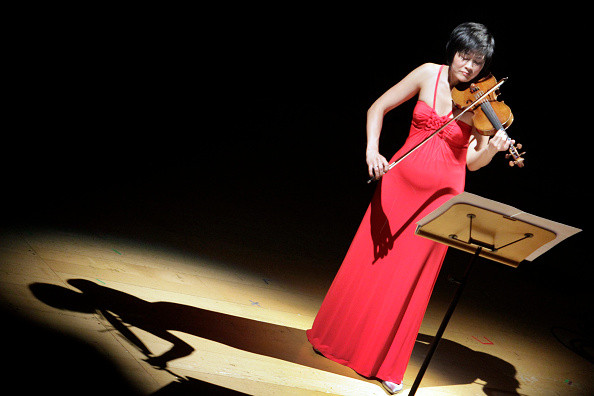How do musicians' brains work? MRI of violinist Jennifer Koh shows music is whole body experience

When professional musicians play an instrument, read music or imagine themselves performing, their brain is activated in a distinctive way, research has shown.
Using functional MRI scans, two researchers from Duke University, in the US, have worked closely with virtuoso violinist Jennifer Koh to understand how her brain works. Neuroscientist Tobias Overath and musician Scott Lindroth wondered if playing music daily made Koh's brain more responsive to different types of musical tasks. They found that for professionals like her, music is associated to an increased cognitive response.
Three different tasks
Koh has been playing violin since she was three years old. However, she suffered a concussion in 2013 which for some time left her unable to use her instrument for more than 20 minutes at a time. Koh has now regained all her musical abilities, but this accident triggered a real fascination for neurosciences, and led to her collaboration with the Duke Institute for Brain Science and with Overath and Lindroth.
At the beginning of March, Koh came to give a concert at Duke's University, which was also the opportunity for the researchers to conduct a series of experiments on her brain she also made time to go organized an fMRI scan, during which Koh's brain activity was measured while she completed three tasks.
First, she was asked to imagine playing a series of classical works that she knew by heart, Bach and Paganini symphonies. She was then invited to read the partitions of both pieces, and to listen to them through headphones.
Analysis of her brain's activity indicate that a unique activation pattern for each of the different tasks, but common traits were also observed by the researchers. For example the brain area responsible for planning movement lit up on all three occasions even though Koh didn't move, suggesting an increased sensitivity to music for professionals. They display a unique and particularly intense cognitive response, during which their whole body is prepared to respond to music.
Sensitive to music
"The musician's brain is exquisitely sensitive to all aspects of music, be it listening, reading or imagining playing music," Overath comments "You engage a whole range of areas of your brain – it's quite literally a whole body experience. From a cognitive point of view, but also physically, it's incredibly strenuous."
These results will now be presented to Duke University Students, during a class taught by Overath and Lindroth called "Music and the brain", which looks at the interconnections between neurosciences and musical performance.
© Copyright IBTimes 2025. All rights reserved.




















